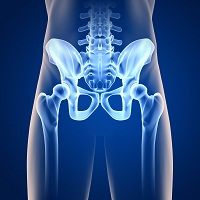Article
X-Rays May Not Pick Up on Hip Osteoarthritis
Author(s):
Hip pain doesn’t necessarily mean hip osteoarthritis, but then again, hip osteoarthritis doesn’t necessarily mean hip pain, as examined by researchers from Boston University School of Medicine (BUSM).

Hip pain doesn’t necessarily mean hip osteoarthritis, but then again, hip osteoarthritis doesn’t necessarily mean hip pain, as examined by researchers from Boston University School of Medicine (BUSM).
Hip pain and osteoarthritis may seem like a rather common association, but according to new research in The BMJ, that doesn’t appear to be the case. The team analyzed a population of hip patients from the Farmington Study (946 patients, ages 50 and older) and Osteoarthritis Initiative study (4,366 patients, ages 49 to 79). Patients were excluded if they had comorbidities that would interfere with the studies, such as rheumatoid arthritis or bilateral total knee replacement.
The participants used a hip visual representation to specify if they had pain most days, and if so, where it was located (anterior, groin, lateral, buttocks, or low back). They were also examined for hip pain with internal rotation. Outcomes showed that hip pain and osteoarthritis actually don’t match up in most cases.
- The MD Magazine Osteoarthritis condition center
In the Farmington Study, only 15.6% of patients with frequent hip pain had radiographic signs of osteoarthritis. On the other hand, 20.7% of patients with radiographic signs of osteoarthritis had frequent hip pain. Similar findings were observed in the four-year Osteoarthritis Initiative study where only 9.1% of painful hip cases were actually osteoarthritis and 20.7% of hips with osteoarthritis were frequently painful.
“The majority of older subjects with high suspicion for clinical hip osteoarthritis did not have radiographic hip osteoarthritis, suggesting that many older persons with hip osteoarthritis might be missed if diagnosticians relied on hip radiographs to determine if hip pain was due to osteoarthritis,” corresponding author Chan Kim, MD, from BUSM said in a news release.
The clinical implication is that test results should not determine whether or not to move forward with a possible hip osteoarthritis diagnosis. “Given these findings, patients with suspected hip osteoarthritis should be treated regardless of x-ray confirmation,” Kim said.
Failing to catch an osteoarthritis case has harmful consequences. The condition has already been linked to sleep disturbances and heart problems when it requires total joint replacement surgery. So regardless of what an x-ray says, dig a further.
What to Read Next >>> Exercise Beneficial for Pain Reduction in Knee Osteoarthritis





